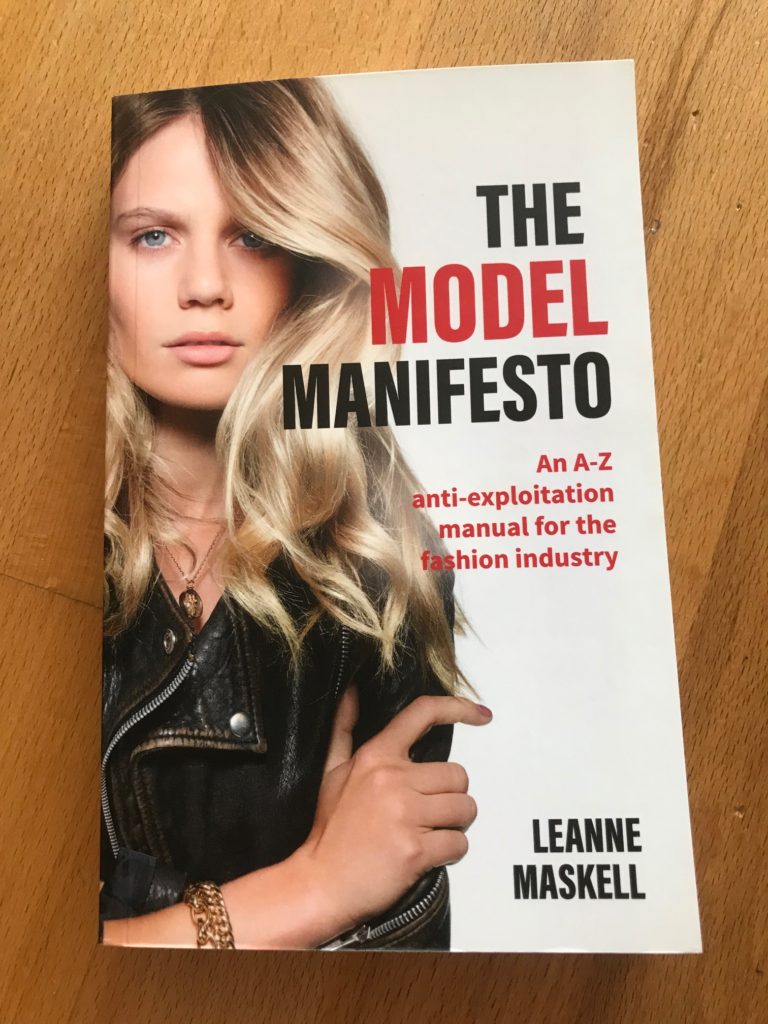I was interested to see this book on the modeling industry. I have worked as an actor and I have also done modeling in the past. There are no words for how much I hated working as a model. I was never actually a model, but the way women are treated is awful. On the other side, I have covered London Fashion Week many times. Seeing how thin and young the models were always tugged on my conscious.
Leanne Maskell is a warrior. This brave book she has written should be read by every model and everyone who works in the fashion industry. It should indeed become a manifesto. Bravo to Leanne. I hope she sells millions of copies of this book.
The Life of a Model: Physical, Financial and Emotional Exploitation
Vogue model releases an A-Z anti-exploitation manual for the fashion industry
Why this book matters:
- Exploitation has become accepted in the industry, with 29.7% of models being inappropriately touched on a shoot and 28% of models facing pressure to sleep with someone at work.
- Over half of all models start working before they are 16, yet America is the only country to legally enforce breaks, chaperones and limit working hours. The lack of restrictions led to 14-year-old model Vlada Dzyuba working herself to death in 2017.
- The pressure on models to lose weight and the constant rejection from clients can leave them vulnerable to mental illness, with 31% suffering from eating disorders and 68% from anxiety and/or depression.
- Models face intense financial exploitation, with hidden contracts signed on their behalf meaning agencies in the UK take as much as 45% commission and can charge required expenses such as transport, personal trainers, nutritionists and hairdressers to the model without their prior knowledge or consent.
- Modelling can be very dangerous, with 77% of models said they had been exposed to alcohol or drugs while on a job and 50% exposed to cocaine.
Sixteen hour working days, forced onto starvation diet plans, waiting months to be paid, no changing rooms, hair bleached beyond repair, made to strip naked at work, swallowing cotton wool soaked in water to curb your appetite – this is the ugly truth behind the life of a model.
Leanne Maskell is the author of The Model Manifesto, an A to Z anti-exploitation manual to the fashion industry which aims to educate current and aspiring models on how to find success and avoid the pitfalls of physical, financial, and emotional exploitation.
The book’s advice covers essential topics every model needs to know including: finding the right agency, creating a portfolio, understanding tax, working aboard, the role of social media, avoiding hidden agency expenses and knowing your own legal rights.
Leanne Maskell, author, Vogue model and activist.
Leanne started modelling at the age of thirteen, working for clients such as Vogue and London Fashion Week. Now, with 13 years of experience working regularly for clients such as ASOS, Amazon and New Look, she has created a book to give models the information she wished she had been provided with throughout her career.
While she loved her career, she frequently suffered from exploitation, including two men changing her into tights on a shoot when she was 13, having her drink spiked, being heavily pressured into shooting revealing imagery and being sent to a hotel room for a “casting” for escorts by her agency. The cost of Leanne’s successful career was suffering from anorexia, bulimia and severe depression.
Leanne empowered herself by studying Law at University and has combined her legal and modelling experience to empower other models in the hope that they do not encounter the same pitfalls as she has. Whilst writing The Model Manifesto, she created policies to improve the modelling industry which has led to a legal career advising on immigration law & mental health law policy.
“The Model Manifesto has been written to protect the 99% of models that don’t make it big – the ones who are treated as disposable objects. It also aims to educate those who wish to be models on how to avoid exploitation, empower themselves and enjoy the benefits of the job.” – Leanne Maskell
The Model Manifesto by Leanne Maskell is out 02 May 2019 and is priced at £14.99. To find out more go to: www.themodelmanifesto.com

